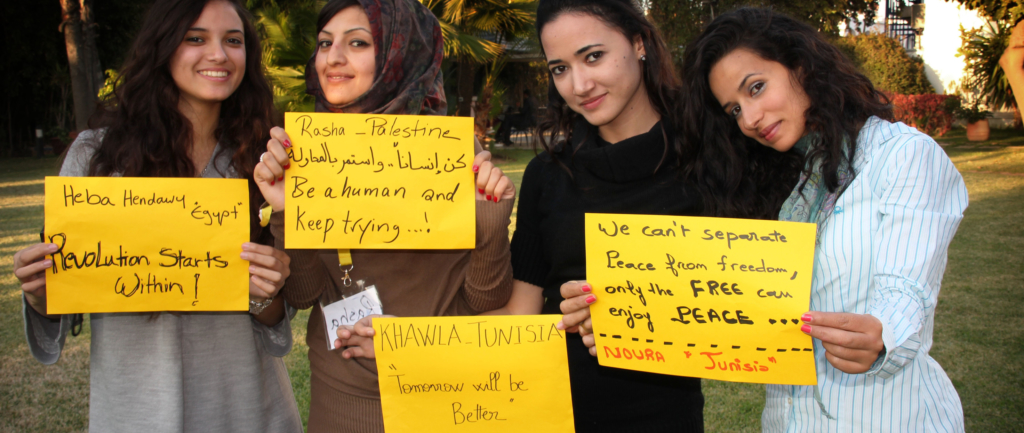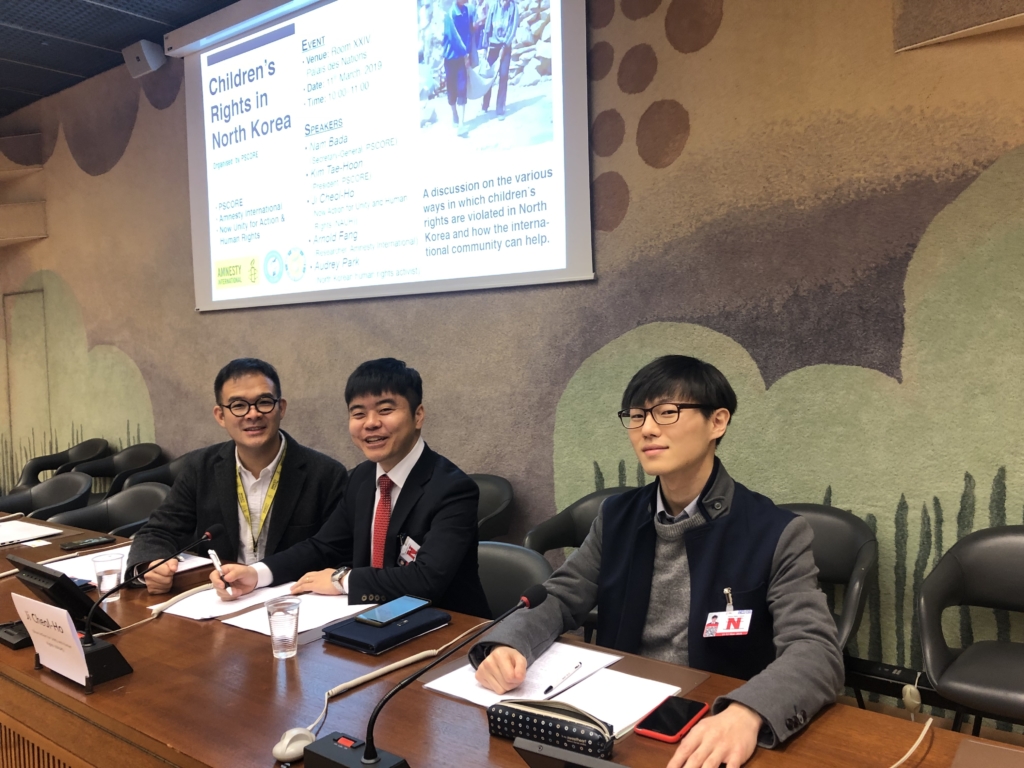Ji Cheol-ho and Kim Keon-woo made separate perilous journeys to escape the brutality of daily life in North Korea and in search of a brighter future.
It is in Seoul where Cheol-ho, 34, and Keon-woo, 32, first met in 2011. They found common cause in a desire to help people still suffering back home and others who, like them, had sought sanctuary abroad.
The two men now dedicate their time working for Now Action for Unity and Human Rights (NAUH), an NGO based in Seoul that campaigns to defend human rights in North Korea and help those who escape.
For the past two years, Amnesty has partnered with NAUH. This culminated with Ji Cheol-ho and Kim Keon-woo addressing diplomats at the UN in Geneva in March, during a review of North Korea’s dire human rights record.
Here the two activists share their stories.
Ji: I escaped North Korea in 2006 with my mother and brother, I was 22. Our father was supposed to join us later, but I never saw him again. We were told he was captured, tortured and died in North Korea.
Earlier this year, I was able to honour our stories at the United Nations, to hold the North Korea regime to account for its abuses against its people and those seeking a better life. To have that opportunity was very important to me.
This is the work I need to do. It is the most precious work and it makes me happy to help.
Ji Cheol-ho
Freedom
Kim: My family was relatively well-off in North Korea, but we all suffered from the Great Famine in the 1990s. There was no food distribution throughout the six months before my family decided to leave. I was 11 years old when my mum told me, “let’s go to a better place and eat better food,” and we fled in 1998.
The plan was to get to our relatives in Dangdong, China, not far from the border. We went across the Tumen river. Many people who try to escape North Korea die along this route. It was August and there was heavy rain. My mother nearly drowned, but the hardest part came when we made it to China.
Without legal papers, we were always in danger of being sent back, where we could be sent to a labour camp or even executed. In China, we stayed at home most of the time, where I studied and learned to speak Chinese. When the police visited our home, we had to hide. We ended up staying in China for seven years, because we didn’t know how to get to South Korea. When we finally made it to Seoul through the South Korean Consulate in Shanghai in 2005, I found freedom.
I graduated and had a job, but I found myself still struggling to afford food. At 17, I had only grown to 110~120 cm tall. I would eat anything I could get, like tree bark. I began to question if this really was the best a country could do for its people.
After my brother and I escaped to China, we split up as we knew that together there was more chance we could be caught. We hoped to see each other again in South Korea but we didn’t know if that would be the last time we saw each other. For 15 days I took many buses and walked through forests as I tried to make it to South Korea through Southeast Asia. Every time someone spoke to me in Chinese, I would just smile and hope for the best.
There was so much to process after I arrived in Seoul. My first impression was that it was a cool airport. I remember the fresh air. I was overwhelmed when I was reunited with my brother and mother, who had already made it to South Korea.
For my first week in Seoul, I didn’t know what to do with my new-found freedom. I slept for a week. I used my freedom to sleep! Then I decided that I would only say yes to things I wanted to do. I wanted to study. That was freedom.

Kim: The best thing about living in Seoul was that I was free to go wherever I wanted. In China, there was always the fear of being sent back.
In 2011, at university I was introduced to Ji Seong-ho who founded NAUH. It may sound strange, but I didn’t know much about human rights abuses in North Korea. I’d seen two public executions when I lived there, but I was so young when we left, I didn’t know what that meant. Out of curiosity, I went to one of NAUH’s meetings. It was then that I realized that it could have been my family suffering these abuses.
The best thing about living in Seoul was that I was free to go wherever I wanted. In China, there was always the fear of being sent back.
North Korean activist, Kim Keon-woo
Courage
Ji: My life changed in Seoul, but I knew that many people back home were still suffering so I helped set up NAUH in 2010. We started with street campaigns in Seoul about human rights in North Korea and expanded as we grew in resources and supporters. A year later, we started emergency rescues of North Koreans. I help North Koreans in China, particularly women, reach South Korea, and to adjust to their new life.

Whenever I meet North Koreans, I see their courage. Back home, I was told that women who leave are the worst. I have a different view now and want to help these women. I talk to them in a North Korean dialect and it makes them feel at home. This is the work I need to do. It is the most precious work and it makes me happy to help them.
Our work together culminated in a campaign to the UN in Geneva this past March, where we met with diplomats to talk about human rights. We presented testimonies and research to contribute to the UN’s Universal Periodic Review (UPR) on North Korea.
Our report to the UN was on street children in North Korea. The abuses they experience are some of the worst. They have no opportunity to stand up for their rights, so as a human rights activist I wanted to do something to help them.
Ji: Though human rights abuses are still prevalent in North Korea, efforts like ours remind people of what is going on. We will never stop working towards helping people in North Korea to realize their rights.
Thank you to Amnesty supporters for caring about human rights in North Korea. I hope that together we can improve human rights for everyone.
Ji Cheol-ho.
Kim: To bring positive change, we need to see more pressure from other governments on North Korea. Governments fear the opinion of their people. It is not possible for North Koreans back home to raise their voice now, so please keep speaking out about human rights abuses, so the North Korean government cannot ignore your voices.
Ji: Thank you to Amnesty supporters for caring about human rights in North Korea. I hope that together we can improve human rights for everyone.


